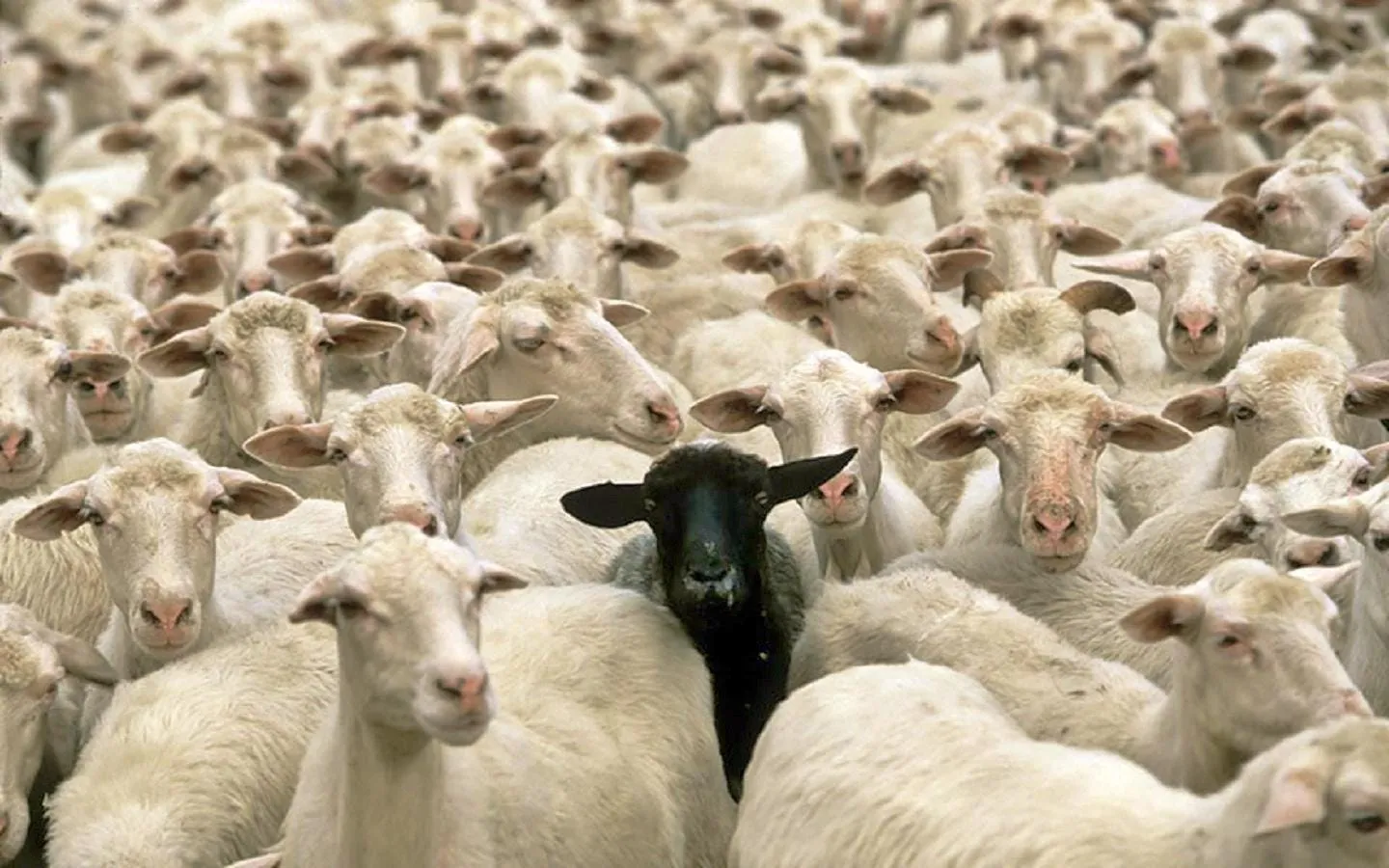Deleuze, Sartre, Difference, and monstrosity
There is something very peculiar about the term difference. It stems from Latin differentia, itself coming from the verb differere which has two meanings in English: to differ and to defer. What's puzzling is that this idea of deferment is not included in the term difference — at least it doesn't anymore, the ODE tells me. I could maybe express it in that way: difference lies in an addition or a subtraction between two beings, and therefore creates in most minds a situation where there is a winner and a loser. In other words, difference creates a verticality, a position of inequality from which one one the terms of a difference gains power over the other.

Deleuze writes in Difference and Repetition that difference, be it a conceptual or not, is "that state in which one can speak of THE determination" (Deleuze, 2011, p. 43). From there, he suggests three distinctive features of difference in itself:
-
Difference is purely empirical : it is the mere product of experience, nothing more.
-
The determinations shaping it are outside itself.
-
A principle of dissymmetry, of asymmetrical relation can be added: Jack is different from Peter, because Peter is tall and Jack short. The symmetry between Jack and Peter is broken.
Today, I’m interested in the third proposition, the idea of asymmetry : the subject or the object lacks something that the other has, here height. I can feel a lack, and a lack always implies 3 required entities: what’s missing or the lacking, the element missing the lacking or the existent, “and a totality which has been broken by the lacking and which would be restored by the synthesis of the ‘lacking’ and ‘the existent’ – this is the ‘lacked’.” (Sartre 1943, 122) This lacked is the difference.
Suppose an orange is missing a quarter of its segments, it’s then not whole, there is a difference of one quarter and I don’t see as whole what I conceive as whole. I make my judgment on the three quarters of a whole orange. The asymmetrical ratio between the imagined full orange and the three quarters of an orange makes the difference. We are in the not-being, nothingness mode: Jack is not as tall as Peter. The three quarters of an orange is not an orange. I could go further and say the difference negates the lacked. Coming back to the verticality idea, the lacked in its/his/her dominant position over the existent.
Sartre has an interesting observation concerning these lack, lacked and existent: the existent exists only in a relation with the lacked, and the lacking and the existent are of the same nature. They could even be permuted – both being an amputation of the lacking: one being the living amputation, what's left of the mutilated limb and the other the part not existing anymore (Sartre 1943, 122-123). Here is the whole citation in English:
In this same surpassing the lacking will be posited as that whose synthetic addition to the existing will reconstitute the synthetic totality of the lacked. In this sense the lacking is of the same nature as the existing; it would suffice to reverse the situation in order for it to become the existing to which the lacking is missing, while the existing would become the lacking. This lacking as the complement of the existing is determined in its being by the synthetic totality of the lacked. Thus in the human world, the incomplete being which is released to intuition as lacking is constituted in its being by the lacked – that is, by what it is not. It is the full moon which confers on the crescent moon its being as crescent; what-is-not determines what-is. It is in the being of the existing, as the correlate of a human transcendence, to lead outside itself to the being which it is not-as to its meaning.
Human reality by which lack appears in the world must be itself a lack. For lack can come into being only through lack; the in-itself can not be the occasion of lack in the in-itself. In other words, in order for being to be lacking or lacked, it is necessary that a being make itself its own lack; only a being which lacks can surpass being toward the lacked. (Sartre, 1956, p. 86-87)[1]
It really seems that whatever approach we take on difference leads to the lesser, the Evil, the nothingness: the lacked goes right through us, engendering mutilations and atrocities. Thought always “makes” the difference but difference nevertheless remains monstrous. Difference is almost always violent, brutal: Nazism, a history of difference that wants to achieve the a-difference in itself, the Aryan race; Stalinism and ideological difference; I won’t make a long list, examples are so abundant in today’s world. And these are of course the most visible examples, but we have also all small scales but all too common expressions of you-are-not-like-me: racist or homophobic slurs for example. The greater the difference - the maximal difference being the opposition - the greater the violence and monstrosity. Difference is the negation of identity: this is perhaps why we don’t like it, it’s never me and always an other. The same, the identical makes us feel us better, the other causes anguish, because it plunges us into the unknown. Yet, difference is such a more powerful tool than identity and its necessary imperfection. There is a way to stop the monstrosity – a way I developed initially in Différence et Comparaison – and will explain in my next post. It will bring us back to differere by precisely re-introducing the idea of space and deferment into difference. Be prepared to see the concept of difference in a totally new light!
Paul Dablemont on Mastodon | Philosohical Annexes in your inbox | © 2024 Paul Dablemont. All rights reserved.
Here the French reference: Sartre 1943, 122-123. ↩︎